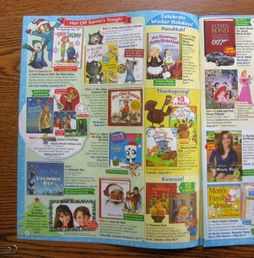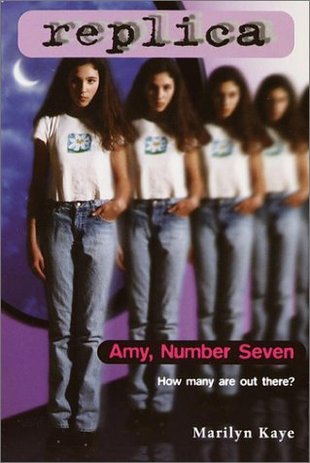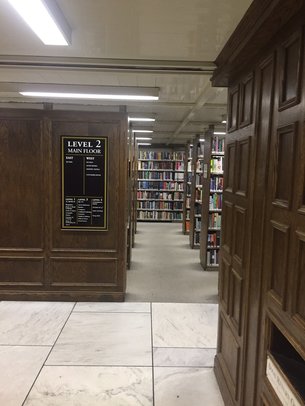|
IT'S SUCH A DISAPPOINTMENT when I hear people tell me, "Oh, I don't read." It's not so much that I want people to read because I want them to contribute to the industry and I want them to buy my books; it's more that I don't quite understand it. Public education has (so far; subject to change any way now) been provided up through high school in this country since circa 1892; literacy rates are at an all-time high, even though they virtually haven't changed in the last ten years and there's still a lot of work that needs to be done in this area, but organizations like Reading Partners (AmeriCorps, so long as it isn't de-funded) tackle head-on. E-readers have provided an unprecedented increase in accessibility to a million books in one little package; libraries remain free (provided you have an address, which is still a barrier for our homeless neighbors but some libraries are actively working to provide for their homeless patrons). I understand that book deserts are a thing, but the people from whom I hear "I don't read" aren't generally in/from book deserts; no, these are people with access to books and people with time to read, if they choose to dedicate/allocate it so. I have a few theories as to why this is the case, particularly drawing from my own experience with reading, so I'll start with my own reading history:
I started failing reading comprehension exams. I started avoiding my reading for school. I fell behind academically and only kept up because I learned how to make it look like I was learning without actually learning anything. I got through high school with a 3.6 GPA and I finished only one of the endless stream of books assigned to us in school. I pretended like I got the inside jokes my friends made about the assigned reading and developed a special skill for writing essays based on SparkNotes and class discussions. And I loved writing and critical thinking so much that it was difficult to tell that I was, more or less, academically illiterate. It took me ten minutes to read a simple page of The Scarlet Letter and twenty minutes for a single page of Lord Jim, and after a while I just gave up because I couldn't keep up and I was otherwise considered a very bright student, so no one but my mom thought any more about it. (My mom tried to put me in speed-reading and reading comprehension tutoring, which made a nominal difference, but not enough for me to keep up with my workload and my subsequent laziness.) Meanwhile, I was tearing through Harry Potter like nothing else. My friends were falling in love with Shakespeare and Jane Austen and I pretended like I loved them, too, when really I wanted nothing more than to lose the books (a crime, forsooth) and never see them again. Then I went to college and the problem got worse.
And I didn't understand what I was reading because I was too overworked/pressed for time to really engage in the books.
Why, though? How could a university-level English student not have the reading comprehension skills to engage in basic college literature? Why were Euripides and Tony Morrison so inaccessible to someone who loved books? The answer was embarrassment. I had been shamed for falling behind. Shamed not by my professors, but by the culture of my peers--worst of all, my friends. As the professed "writer" in my friends group growing up, how could I, of all people, not understand Shakespeare's crude inside jokes or be lost on the whole point of reading The Grapes of Wrath? Most of the kids at my school were smarter than me; I got by on pretending like I was smart. I knew the recipe for doing the work to get good grades, and that was what the whole American educational system cared about. They used antiquated language or were set in unfamiliar cultures, while I liked YA novels with not-so-futuristic settings exploring speculative cultures and worlds. It wasn't until my thesis advisor took my thesis--a YA-literary-crossover speculative fiction novel (a far cry from the collections of contemporary short stories my peers were executing)--seriously and met me on the level of writing what I wanted to write that I began to think of YA not as the cheap, movie-trilogy-franchise-inducing-with-attractive-white-teens genre that I'd seen it marketed to be, but as the platform for bringing reluctant readers to be a gateway for accessing literature that it is. When it comes down to it, why do we write stories? Why do we read books? Literature is our gateway to reflecting on the worlds we live in, whether eerily similar or drastically different. It's not to promote our own tastes as superior to the lowly drivel everyone else reads--such attitudes only serve as an ego boost for that one person and make everyone else feel bad for reading what they like. And for some readers, that can be the difference between reading and not picking up a book at all. So--take this as one reader's permission to another: read what you love to read, and don't let anyone make you feel bad about it. Doing this has actually led me back to some classics and I can now access them more than I would have ever previously been able to. But stay curious, and stay open: you never know what worlds might suck you into their dusty pages--or which ones you might create yourself. *I have now read both of these books, and they are fabulous. -------- If you're in the Spokane, WA area this Thursday, April 20, there is an event happening at the Get Lit! festival called "Finding Your Edge: How Teens Can Hone Their Writing." There will also be a Zine release at the same venue and the same location that night. Get Lit! is an awesome organization that celebrates and encourages all kinds of reading up in Spokane; get involved in their other programs here.
2 Comments
Mommy
4/18/2017 11:06:13 am
You make an excellent point. Nevertheless, schools are there to expose you to different genres of literature.
Reply
1/28/2018 11:05:06 pm
I learned about classic literature after college than during because I could read it with more patience and enjoyment instead of looking for passages that I could use in an essay. Also I was a history major.
Reply
Leave a Reply. |
PART OF THIS COMPLETE BREAKFASTBlog not recommended for sober consumption. |



 RSS Feed
RSS Feed